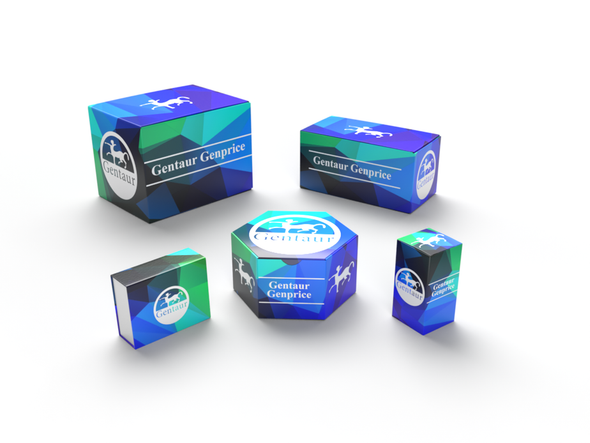740
Human Delta-aminolevulinic acid dehydratase (ALAD) ELISA Kit | AE20216HU
- SKU:
- 740-AE20216HU
- Availability:
- Usually ships in 5 working days
Description
Human Delta-aminolevulinic acid dehydratase (ALAD) ELISA Kit | AE20216HU | Gentaur UK, US & Europe Distribution
Species Reactivity: Human (Homo sapiens)
Abbreviation: ALAD
Alternative Name: RP11-10I9.1; ALADH; MGC5057; PBGS; aminolevulinate dehydratase|delta-aminolevulinic acid dehydratase|porphobilinogen synthase
Application: ELISA
Range: 0.312-20 ng/mL
Sensitivity: 0.128 ng/mL
Intra-Assay: ≤4.1%
Inter-Assay: ≤6.9%
Recovery: 1, 01
Sample Type: Serum, Plasma, Other biological fluids
Detection Method: Sandwich
Analysis Method : Quantitive
Test Principale: This assay employs a two-site sandwich ELISA to quantitate ALAD in samples. An antibody specific for ALAD has been pre-coated onto a microplate. Standards and samples are pipetted into the wells and anyALAD present is bound by the immobilized antibody. After removing any unbound substances, a biotin-conjugated antibody specific for ALAD is added to the wells. After washing, Streptavidin conjugated Horseradish Peroxidase (HRP) is added to the wells. Following a wash to remove any unbound avidin-enzyme reagent, a substrate solution is added to the wells and color develops in proportion to the amount of ALAD bound in the initial step. The color development is stopped and the intensity of the color is measured.
Product Overview: The ALAD enzyme is composed of 8 identical subunits and catalyzes the condensation of 2 molecules of delta-aminolevulinate to form porphobilinogen (a precursor of heme, cytochromes and other hemoproteins) . ALAD catalyzes the second step in the porphyrin and heme biosynthetic pathway; zinc is essential for enzymatic activity. ALAD enzymatic activity is inhibited by lead and a defect in the ALAD structural gene can cause increased sensitivity to lead poisoning and acute hepatic porphyria. Alternatively spliced transcript variants encoding different isoforms have been identified.
Stability: The stability of ELISA kit is determined by the loss rate of activity. The loss rate of this kit is less than 5% within the expiration date under appropriate storage condition. The loss rate was determined by accelerated thermal degradation test. Keep the kit at 37°C for 4 and 7 days, and compare O.D.values of the kit kept at 37°C with that of at recommended temperature. (referring from China Biological Products Standard, which was calculated by the Arrhenius equation. For ELISA kit, 4 days storage at 37°C can be considered as 6 months at 2 - 8°C, which means 7 days at 37°C equaling 12 months at 2 - 8°C) .










